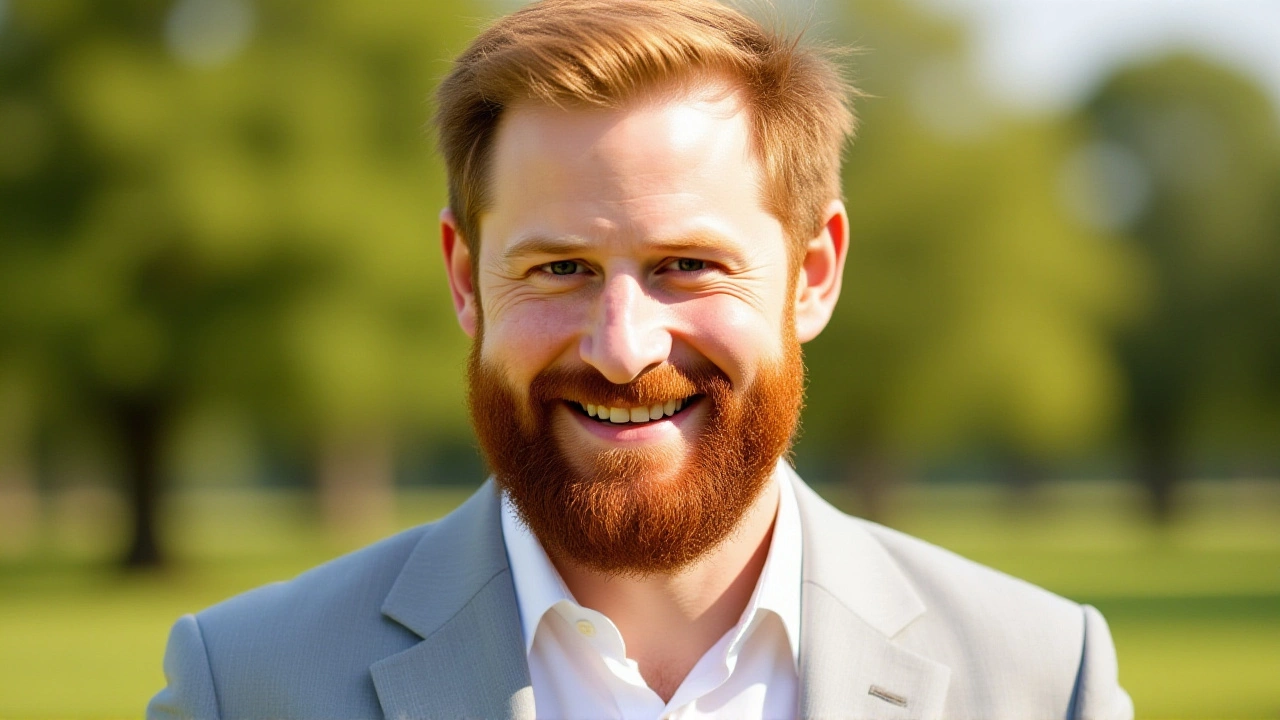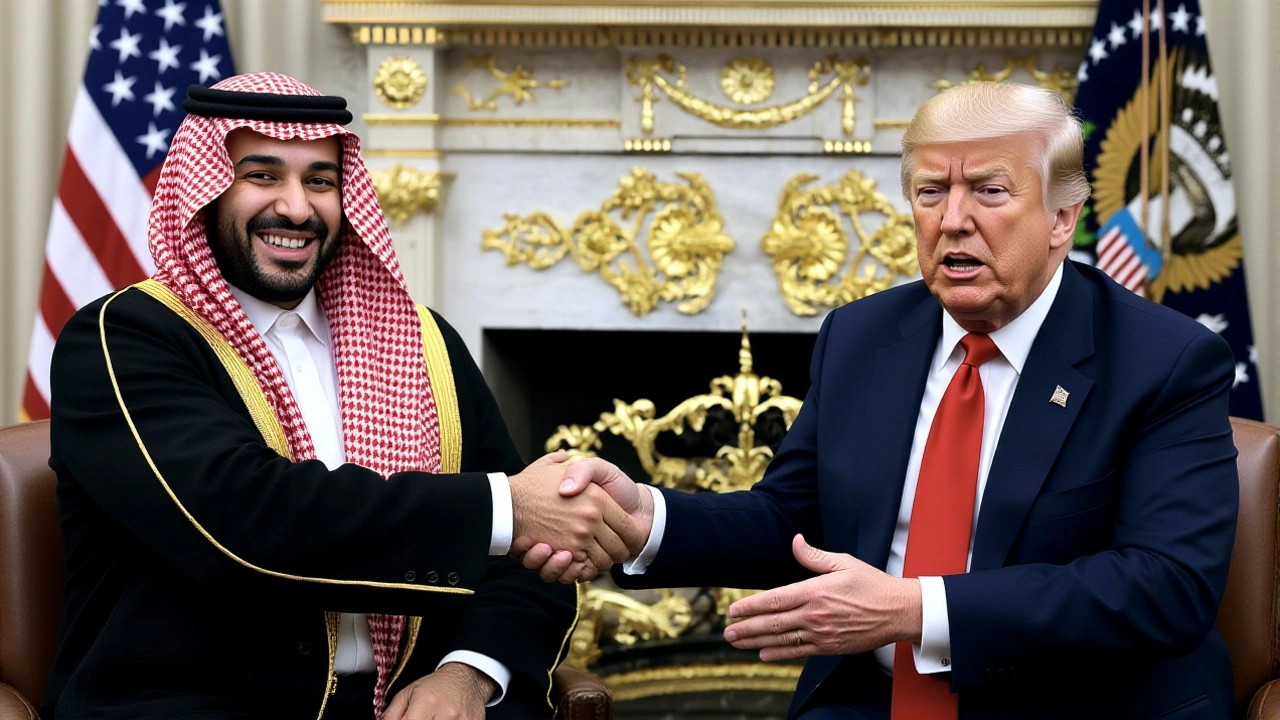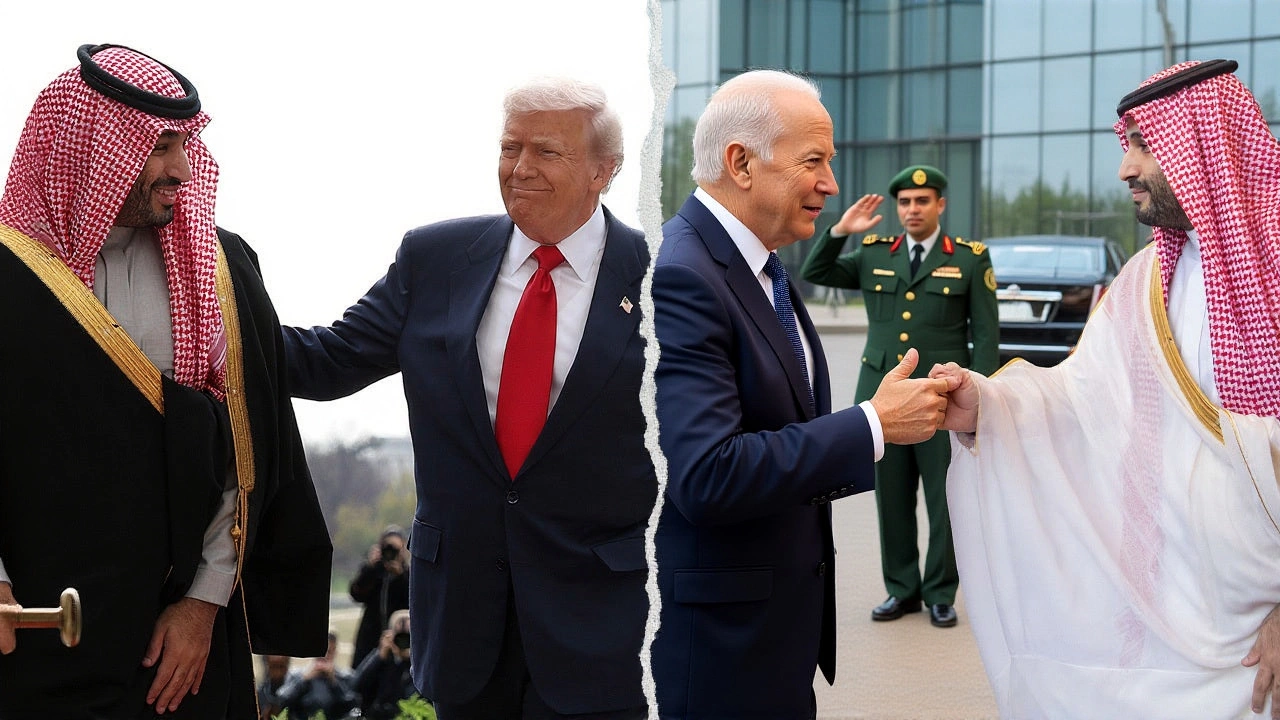When Joseph R. Biden Jr. fist-bumped Mohammed bin Salman in Jeddah on July 15, 2022, he didn’t just break a handshake tradition—he ignited a firestorm that still echoes in Washington. The gesture, captured on camera and broadcast globally, came just months after the U.S. intelligence community confirmed MBS approved the 2018 murder of Jamal Khashoggi, a U.S. resident and Washington Post columnist whose dismemberment inside the Saudi consulate in Istanbul shocked the world. Critics called it a betrayal. Khashoggi’s fiancée, Hatice Cengiz, told reporters: "The blood of the crown prince’s next victim is on Biden’s hands." Biden’s response? "I was straightforward back then. I was straightforward today." But the optics, as they say, don’t lie.
Why the Fist Bump Mattered More Than It Seemed
The meeting wasn’t casual. It was a high-stakes diplomatic maneuver. Russia had invaded Ukraine on February 24, 2022, sending crude oil prices soaring past $120 a barrel. Gasoline in the U.S. hit $5.10 a gallon in June 2022—the highest ever at the time. Biden needed Saudi Arabia to ramp up production. And to get it, he had to sit across from the man the CIA concluded ordered Khashoggi’s killing. The U.S. intelligence report released on February 26, 2022, left no room for plausible deniability. Yet here was Biden, in a palace courtyard, bumping fists with the crown prince as cameras rolled. The smirk on MBS’s face when a journalist shouted Khashoggi’s name during the meeting? That didn’t help. Neither did the fact that Biden had spent the 2020 campaign vowing to make MBS an "international pariah."Trump’s Oval Office Reckoning
Fast forward to November 18, 2025. Donald J. Trump was back in the Oval Office—not as president, but as a guest of the sitting administration. And when Mohammed bin Salman walked in, Trump didn’t hold back. "Trump doesn’t give a fist bump," he said, leaning forward. "I grab that hand. I don’t give a hell where that hand’s been. I grab that hand." He didn’t just criticize the gesture—he framed it as a failure of leadership. "You fly 20 hours, you land in Saudi Arabia, you’re greeting the future king? You shake his hand. You don’t give him a fist bump." The Associated Press and MassLive both recorded Trump’s remarks, which were later amplified by YouTube clips. Trump even brought up Ronald Reagan as a model: "Reagan had close ties with Saudi Arabia. We’ve worked with all presidents—but we didn’t fist bump.
What Happened After the Fist Bump?
Biden’s administration did secure a modest oil production increase from OPEC+ in October 2022, helping to bring gas prices down by nearly 30% by year’s end. But the diplomatic cost was steep. Human rights groups like Human Rights Watch and Amnesty International condemned the visit as a "green light" for Saudi repression. Meanwhile, the U.S. Congress, which had previously blocked arms sales to Saudi Arabia over Khashoggi, quietly resumed approvals in 2023. The message? Strategic interests outweighed moral posturing. In March 2023, Biden and MBS met again—at the G20 summit in New Delhi. This time, they shook hands. No fist bump. No smirk. Just a stiff, professional exchange. But the damage to Biden’s credibility on human rights had already been done. Critics pointed to the contrast: Biden had called MBS a "pariah" on the campaign trail, then treated him like a trusted ally in the White House’s most urgent hour.The Geopolitical Calculus Behind the Gesture
The 2022 Saudi visit wasn’t about friendship. It was about survival. With China deepening ties with Saudi Arabia through its Belt and Road Initiative—and Russia leveraging energy exports to undermine Western unity—Washington had to act. Saudi Arabia, home to 13% of global oil reserves, was slipping out of America’s orbit. The U.S. had already pulled back from Iraq and Afghanistan. China was building ports in the Red Sea. Russia was selling oil to India and China at discounts. Biden’s team knew: if they didn’t show up, someone else would. The fist bump? It was a symbolic price tag. For $1.5 million in arms sales approved in 2023, for access to Saudi financial markets, for Riyadh’s quiet agreement to keep oil flowing, Biden paid with his moral authority. And Trump, ever the showman, knew exactly how to weaponize it.
What’s Next for U.S.-Saudi Relations?
The Biden administration is now pushing for a broader normalization deal with Saudi Arabia, including potential recognition of its nuclear energy program. But Congress is divided. In early 2026, a bipartisan group of senators introduced the Saudi Accountability Act, which would condition arms sales on progress in human rights. The bill has little chance of passing—but it’s a signal. Meanwhile, MBS is quietly courting Europe and India, building alliances that don’t require U.S. approval. The real question isn’t whether Biden should’ve fist-bumped MBS. It’s whether any U.S. president can afford to avoid him. The world’s oil doesn’t care about Khashoggi’s murder. It cares about supply chains, inflation, and stability. And right now, Riyadh holds the keys.Frequently Asked Questions
Why did Biden meet with MBS despite the Khashoggi assassination?
Biden’s team faced a dire energy crisis after Russia’s 2022 invasion of Ukraine, which sent U.S. gas prices to record highs. Saudi Arabia controlled enough oil to stabilize markets, and with China and Russia expanding influence in the Middle East, the U.S. couldn’t afford to isolate Riyadh. The decision was strategic, not personal—even though it contradicted Biden’s 2020 campaign promise to make MBS a "pariah."
What did Trump mean by "I grab that hand"?
Trump was contrasting his own aggressive, transactional style of diplomacy with Biden’s perceived reluctance. By saying "I grab that hand," Trump implied he’d prioritize power and control over optics or moral signaling. His comment wasn’t about hygiene—it was about projecting dominance. He framed Biden’s fist bump as weak, while positioning himself as the strongman who doesn’t flinch, even with controversial leaders.
Did Biden ever apologize for the fist bump?
No. Biden never issued a formal apology. He told reporters he was "straightforward" in both 2020 and 2022, implying his position hadn’t changed—he just had to make hard choices. He expressed regret that Khashoggi’s fiancée felt betrayed, but stood by the decision. His administration later emphasized that the meeting was about "regional security," not personal endorsement.
How did the public react to the fist bump at the time?
Public backlash was swift and bipartisan. A June 2022 Pew Research poll showed 68% of Americans disapproved of Biden meeting MBS without conditions. Even conservative commentators who normally supported Biden on foreign policy called the fist bump "embarrassing." Social media flooded with memes of Biden as a "Saudipalooza" guest. The image became a symbol of perceived U.S. moral decline.
Has MBS’s international standing improved since 2022?
Yes. Despite Western criticism, MBS has strengthened ties with China, India, and even France. He hosted the 2023 G20 summit in New Delhi alongside Biden and has since signed $120 billion in Chinese infrastructure deals. The U.S. may have been the first to shake his hand—but he’s no longer dependent on Washington. His "Vision 2030" economic plan has attracted global investors, making him harder to isolate than ever.
What’s the long-term impact on U.S. credibility on human rights?
The fist bump damaged U.S. moral authority in the eyes of allies and activists alike. Countries like Germany and Canada began questioning whether Washington’s human rights rhetoric was genuine or performative. Human rights watchdogs now cite the 2022 meeting as a turning point where geopolitical pragmatism overrode principle—a precedent that makes future U.S. condemnations of abuses in Iran, Egypt, or Hungary ring hollow.
